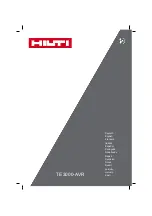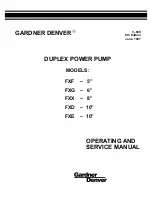
260
Bosch Rexroth AG
| Tightening Technology
3 608 870 A47
Nexo cordless Wi-Fi nutrunner
| 3 608 870 A47/2019-10
Application
The torque-controlled tightening process is mainly used for:
•
transmission assembly
•
wheel assembly
•
exhaust manifold assembly
As the result value for all data outputs, the maximum torque that occurred after the switch-off is output via
the target function.
10.3
Angle-of-turn-controlled tightening process
The angle of turn is controlled and the torque monitored in this process. Here, the bolt is permanently
deformed.
The angle-of-turn-controlled tightening process offers the following advantages:
•
Minimization of the dispersion of the mounting clamp force, i.e. the tightening factor
1)
is close to 1
•
a particularly high bolted connection strength can be attained
The angle of turn is registered in the measurement transducer.
Function
Fig. 10–2:
T = f (A), angle of turn-controlled, torque-monitored tightening process
The torque increases from positioning of the bolt head until it reaches the torque threshold Ts (torque-
controlled). Ts should be at the beginning of the linear increase of the tightening graph (as the joining
processes of the tightening parts are almost complete here). From the torque threshold TT, rotation con-
tinues at a defined angle of turn (tightening angle) until the target parameter AP is reached.
1) Tightening factor = F
Mmax
/ F
Mmin
= dispersion of the mounting clamp force (clamp force).
(1)
Angle safety limit
(2)
Tightening angle
M–
M+
[Nm]
Ms
Wz
0
(1)
(2)
[ ]
o
Ts
WP
T+
T–
















































